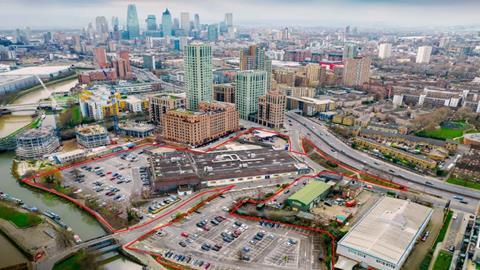UK social infrastructure real estate specialist Newcore Capital has acquired a 5.6-acre supermarket investment in Bromley-by-Bow, East London, from British Land for £30 mln (€35 mln).

The site, which sits within the London Borough of Tower Hamlets, currently comprises a 70,000 ft2 (6,500 m2) Tesco supermarket, a 558-space car park, and a petrol filling station. Morgan Williams and Osborne Clarke acted for British Land on the transaction. Savills and DWF acted for Newcore.
The asset was purchased on behalf of Newcore’s latest value-add vehicle, Newcore Strategic Situations (NSS V), as there is medium term scope to unlock value from the site due to its strategic location in a key regeneration area in East London, while benefitting in the shorter term from the income generated by the existing occupier.
NSS V reached a final close at £190 mln of equity commitments in May last year and is still in the investment phase. Recent acquisitions include an NHS-backed GP surgery in Kent, two education investments in Oxford and Cambridge, and a food distribution centre in Colchester.
Harry Savory, CIO, Newcore Capital, said: 'We are pleased to have purchased the Tesco Bromley-by-Bow and we are actively on the hunt for further covered land plays in strategic locations where there is a medium-term opportunity to enhance value through increased provision of social infrastructure uses – this is a key criteria for us, alongside the potential for strong risk-adjusted returns.'
In late 2023, Newcore announced the launch of a new core-plus investment vehicle, named The Newcore Social Infrastructure Income Fund, which is targeting £375 mln in equity commitments. The vehicle – the firm’s largest fund yet – aims to capitalise the strong underlying demand fundamentals for social infrastructure real estate at a time of market dislocation, while its size is indicative of Newcore’s belief in the positive investment outlook for the sector.
Hugo Llewelyn, CEO, Newcore Capital, said: 'With the deflationary impact of the internet continuing to disrupt offices and retail, previously the mainstay of institutional investment in real estate, investors are increasingly looking for exposure to asset classes that demonstrate resilience to technological change. We see the broad spectrum of social infrastructure as presenting one route for institutional capital seeking sustainable income and capital value growth and the ability to deliver tangible positive impact.'










